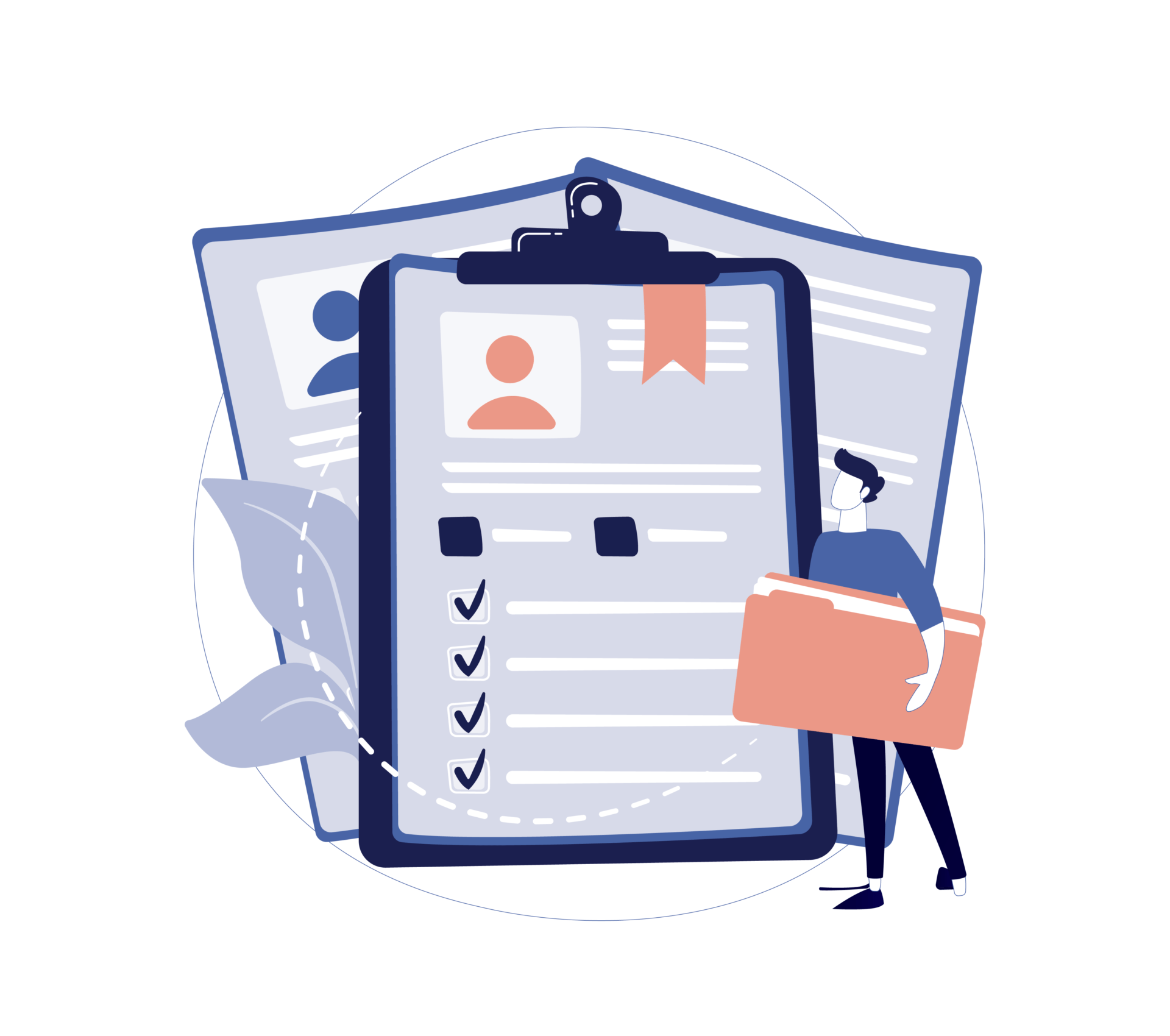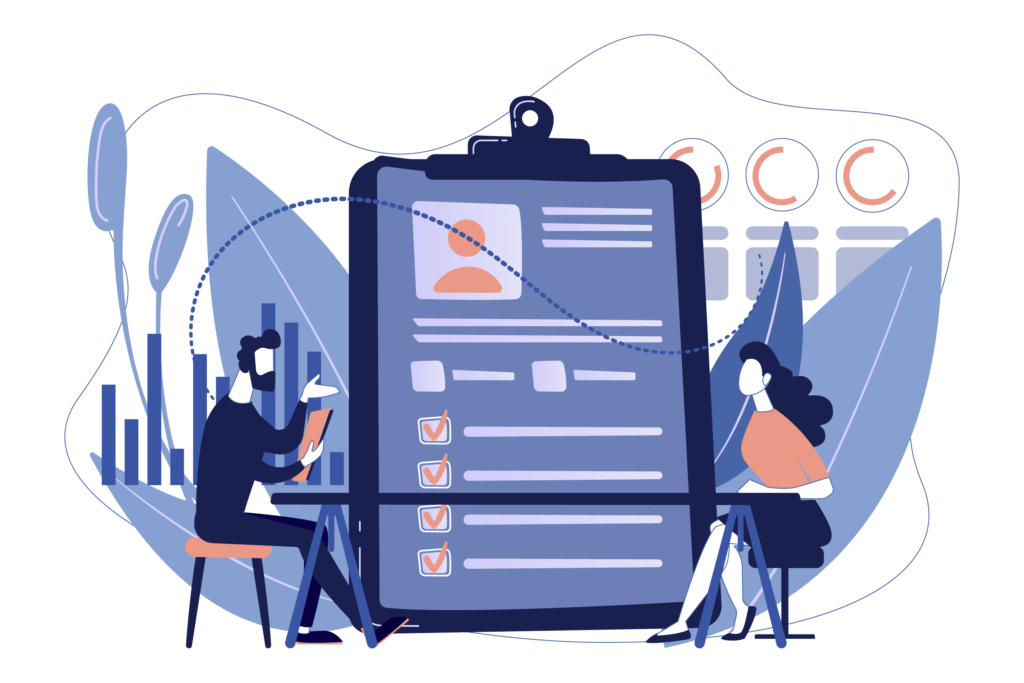Even though hiring managers could technically ask you almost any question imaginable, they tend to stick to the same old favorites the majority of the time. Of course, you will face some job interview questions specific to the position, but most interviews focus on finding out about your character and general skill set.
Being aware of the most common job interview questions will allow you to come up with some ideas in advance to make the best impression. You shouldn’t come up with the exact answers now — both because the interviewer may ask a variation of the question and because you want to sound natural — but having a rough idea of what you’ll say will help you feel prepared.
1. Tell Me About Yourself
This first one is not technically a question, but it comes up at almost every job interview. When employers ask you this, they want to know if their assumptions about you (gleaned from your resume, job application, and, possibly, social media accounts) are correct. They also want to gain a better idea of your personality to see what makes you stand out from other candidates.
In your response, try to give an overview of who you are and what you’ve been doing recently. You need to be succinct (this is just the start of the interview) and end with an example that shows just why you’re the ideal candidate for the position.
2. What’s Your Biggest Weakness?
No one enjoys answering this question. The last thing you want is to admit your failings. At the same time, though, you don’t want to come across as arrogant — which is exactly what will happen if you present a quality as a weakness when you know it’s actually a strength.
The best way to respond to this question is to mention a skill you do struggle with and talk about how you’re striving to improve. For instance, you could mention a new strategy you’ve adopted to become more productive or better manage your time. Alternatively, if you’ve been taking any online courses for business skills, you could mention these.
3. What’s Your Biggest Strength?
Interviewers often ask this and the above question together — although they may switch the order. Answering a question about your strengths can actually be just as difficult as talking about your weaknesses. Just remember: this is no time to be modest. Choose a skill you know you should be proud of and provide examples to back up your claims.
4. How Did You Hear About the Position?
This sounds like a simple question that requires just a one-sentence (if not one-word) answer. However, there’s an opportunity here to impress the interviewer. You could talk about the excitement you felt when you saw the posting because it’s just the kind of job you’re looking for — make sure to mention specifics.
Even better, you may have heard about the job through a contact, in which case you should name the person. This will demonstrate that you’re well connected. Alternatively, if you found the position because you’ve been waiting for something to open up at the company for some time, say that. The hiring manager will be impressed by your keenness to join the organization.
5. What Do You Know About the Company?
Learn as much as you can about the organization before you go to the interview and you’ll be able to give an interesting answer. Bear in mind that hiring managers don’t want you to recite back all the information you learned from reading the company website. They want to see that you understand what the company does, its values, and its culture. In other words, you should know things about the organization that require a little digging.
6. Why Do You Want the Job?
Interviewers may ask you why you want the position, why you want to work at the company, or perhaps both as two separate questions. In either case, the interviewer is trying to find out why the job appeals to you.
Although the question appears to be about you, turn it around. Talk about the needs of the organization and how you’d be able to fulfill them. Pick a quality of the position or the company that you find interesting and frame this as the reason you’d be passionate about the work you’d be doing. Sincerity is key here — hiring managers are looking to see real enthusiasm.
7. Why Should We Choose You?
Talk about the unique characteristics you possess that make you the perfect fit for the role. These are likely to include the qualifications and experience specified in the job listing, but you can also talk about your skills, working style, and even personality traits. Just make sure everything ties back to the role and demonstrates why the company would be crazy to choose anyone but you.
8. What Are Your Career Goals?
Interviewers often use this question to determine if you’ll be a good fit for the company in the long term. They want to see if you have an interest in growing within the organization — not that you’ll be using the position as a stepping stone to something bigger at another company.
The best answer to this question will relate to the job, rather than being about your hopes and dreams in general. Talk about how the position matches your current qualifications perfectly but still provides new exciting opportunities. Name some actual targets you have (this will show that you’re goal oriented), making sure they’re realistic (this will show an understanding of the industry).

9. Where Do You See Yourself in Five Years?
This is another one of the more difficult questions to answer, as you need to find a balance between looking too ambitious and appearing unmotivated. The best way to strike this balance is to avoid talking too much about yourself. Instead, talk about what results you want to achieve for the organization in five years. Also mention what skills you want to learn or improve — but stick to skills that matter for the position.
10. Why Did You Leave Your Previous Job?
Alternatively, if you’re still at your current position, the interviewer may ask you why you’re thinking of leaving. In either case, steer clear of saying anything negative about your previous position and employer. Interviewers will consider it a red flag that you have a bad attitude — and they may be concerned that you could badmouth their organization at a later date. Answer this question by looking to the future, instead of describing what is holding you back now.
It’s also possible that you didn’t leave your previous job out of choice. You can still frame this in a positive way. For example, you may have survived the first round of layoffs when your company started downsizing or your hard work may have contributed to keeping the company afloat longer than otherwise.
11. What Has Been Your Greatest Achievement?
You may have several potential answers to this question. Choose an achievement that is most related to the role you’re interviewing for. This will show the employer how you may be able to achieve something similar in the future.
Bonus tip: For any question asking about a situation or behavior, use the STAR interview technique. STAR stands for situation, task, action, result. It allows you to provide a detailed response without giving too long an answer.
12. What Motivates You?
Employers like to know that you’ll stay engaged in the role. Make sure your answer mentions factors that the position will provide you with. Possibilities include a flexible work schedule, independence, working with others, or the chance to solve customer problems.
In addition, this is an ideal opportunity to offer actual examples of how you’ve excelled in your previous position. Mention how particular elements of your past jobs kept you motivated and what results this meant you were able to bring to the company.
13. How Would Other People Describe You?
Most interview questions paint a picture of you from your own perspective, but the employer will also want to know what other people think of you. Bear in mind that the hiring manager will call your references to confirm that what you said is true. However, don’t be afraid to take advantage of this chance to highlight a strength you were unable to fit into the conversation earlier. Quote what a former boss or coworker said about you or tell a story that shows your exceptional qualities from someone else’s point of view.
After Landing the Job
With these job interview questions and answers, you’ll be prepared for anything the hiring manager throws at you. However, once you’ve landed the job, you’ll need to continue making a great impression. By demonstrating that you’re a valuable member of the team, you can position yourself as the right choice for a promotion.
If your job comes with a heavy workload, this may be difficult. When you’re spending so much of your time on monotonous work, you have little time left over to excel at the complicated tasks only you can do. The solution is to contract a virtual assistant.
With a virtual administrative assistant from MYVA360, you can hand off all your routine tasks and focus just on the work that relates to your job title. Your VA can carry out everything from data entry and research to inbox management and appointment scheduling. This will enable you to stay passionate about your new job and continue to make a great impression.





